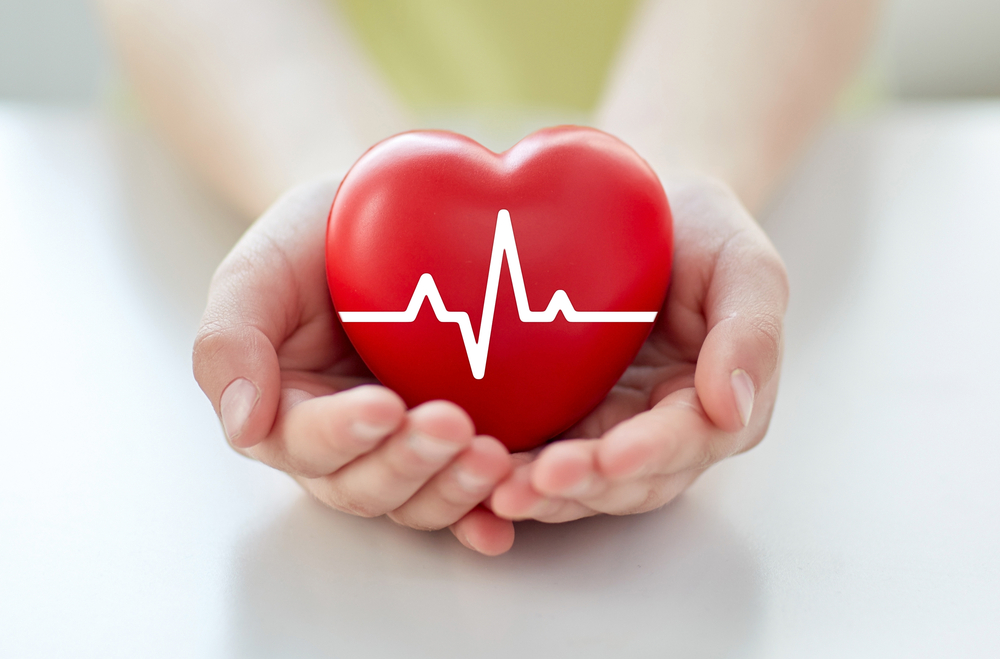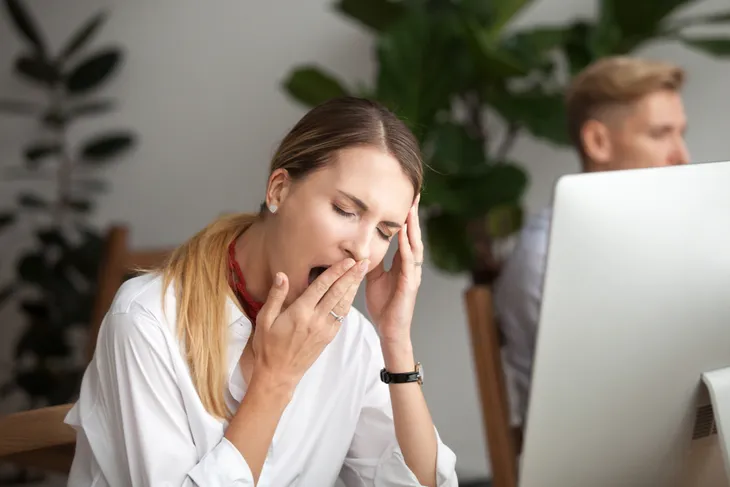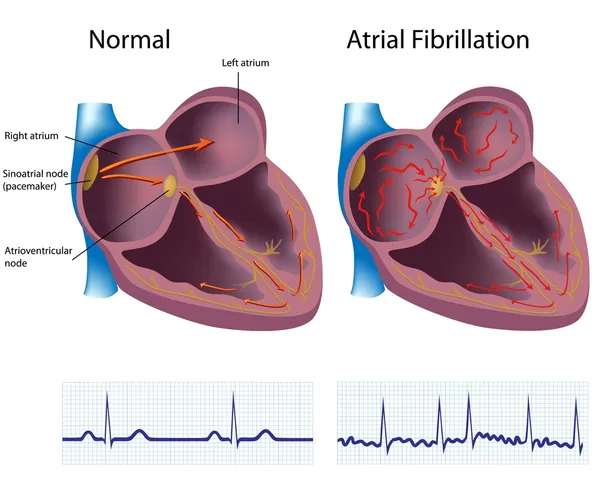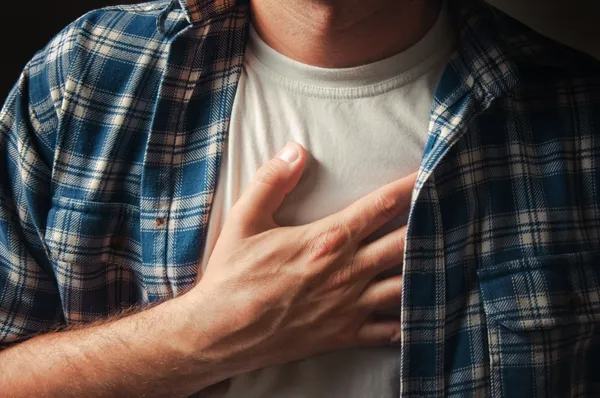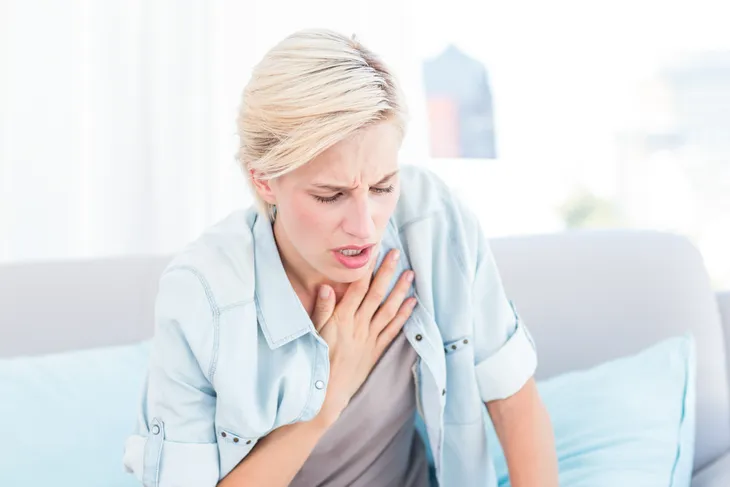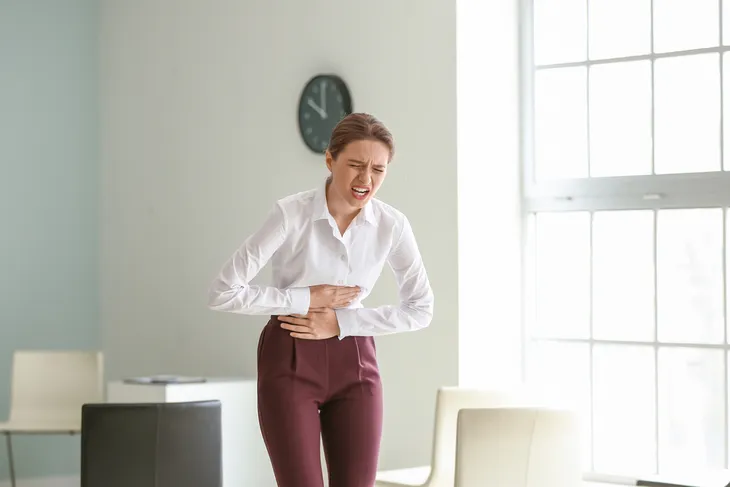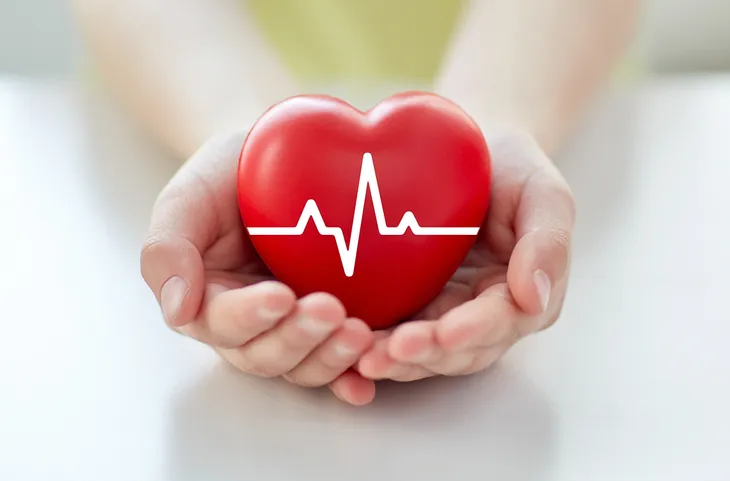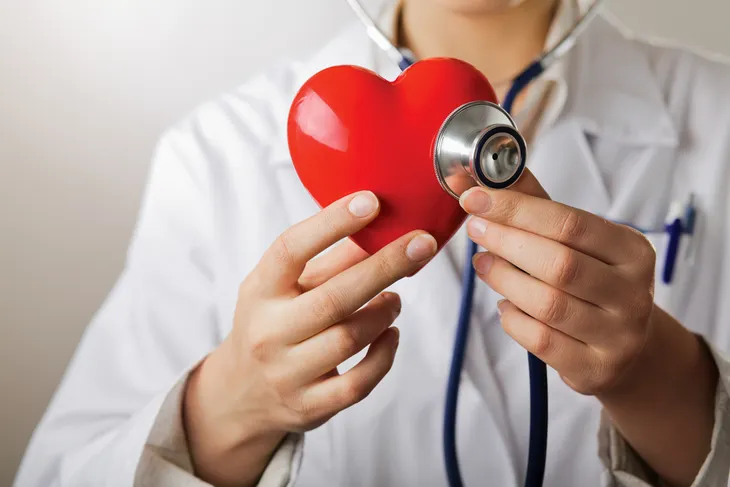There are few conditions more frightening than a serious heart condition. That’s why it’s so important to know everything about the various heart issues that could affect you now or in the future. It’s especially important to educate yourself on these matters if you have a history of heart problems in your family.
One particularly important heart issue is atrial fibrillation, or “AFib” as it’s often called. Atrial fibrillation is a very common type of irregular heartbeat that, in most situations, doesn’t prove particularly dangerous or life-threatening. However, like all heart conditions, it does need to be addressed and monitored carefully. So, what are the top symptoms of AFib?
1. General Fatigue
One of the first signs of a heart condition is generalized fatigue. However, because this is a symptom of so many other issues, such as insomnia, a moderate cold, or stress, those suffering from serious fatigue may not immediately make the connection.
It’s important that anyone struggling with persistent and significant fatigue, particularly those who get a sufficient amount of sleep each night (about 7- to 9-hours for adults), talk to their doctor about the possibility of AFib or another kind of heart condition.
2. Irregular Heartbeat
Ever get that feeling like your heart just skipped a beat or two? For most people, it’s a fairly rare episode that can cause alarm that subsides when the condition goes away. But for people struggling with AFib, it’s a daily struggle.
A quivering or fluttering heartbeat is the most common symptom of atrial fibrillation. Technically, it involves the abnormal firing of electrical impulses in the atria (upper chambers of the heart), resulting in the upper chambers of the heart moving unnaturally.
3. Rapid Heartbeat
There are a number of things that can cause one’s heart to speed up, such as drinking an excessive amount of caffeine (through beverages like energy drinks and coffee) or exercising at a particularly intense rate.
However, a rapid heartbeat should subside, especially if one is not engaged in a fairly intense form of physical activity. If you find yourself struggling with a rapid heartbeat and have no rational way to explain the condition, it’s important you speak with your doctor immediately. The cause may be AFib.
4. Feeling Dizzy
People struggling with serious heart conditions often report feeling dizzy. This can be the result of especially high or low blood pressure, although it could be related to other issues, including dehydration, overexertion, or nausea.
However, a feeling of dizziness should also subside. If it doesn’t, then it’s important to contact your doctor immediately. This could be a sign that AFib or another heart condition that is affecting the blood flow to your brain, leaving you feeling lightheaded and dizzy.
5. Shortness of Breath
Like many of the other symptoms on this list, shortness of breath can be associated with intense physical activity, such as playing a sport like hockey, soccer, or football. But shortness of breath can also emerge if one engages in a range of fairly everyday and non-athletic activities, from taking the stairs to going for a walk on a hot day.
But shortness of breath should not emerge when one is not engaged in any of these kinds of activities and does not have another condition affecting their breathing, such as asthma. This may be the sign of a significant heart problem, such as AFib. Contact a doctor immediately just to be sure.
6. Excessive Sweating
We all have a friend who tends to sweat more than others, no matter how much physical activity they engage in, but that’s not always normal. If you’re someone who doesn’t tend to sweat a lot and you find yourself feeling very hot and sweaty, it could be a sign that your heart is having difficulty performing its job.
This could be a sign of AFib or some other heart-related issue. To ensure that you’re not having a particularly dangerous heart episode, such as a heart attack, consult your doctor immediately. This is especially important if your excessive sweating is accompanied by other symptoms, such as chest pain or tightness or irregular heartbeat.
7. Chest Pain
It’s important to note that chest pain or pressure, whether it’s due to AFib or not is considered a medical emergency. If you’re experiencing this symptom, Heart.org advises calling 9-1-1 or seeking medical care immediately.
8. Abdominal Pain
WebMD talked to Steven Fishberger, MD, a pediatric cardiologist at the NYU Langone Medical Center about the signs and symptoms of atrial fibrillation and learned that while it’s not as common for teenagers to suffer from AFib, they can experience symptoms. Dr. Fishberger explained to WebMD that “a single event of AFib for an otherwise healthy heart can be triggered by drug or alcohol use, or even exercise. Frequently, a teen will describe a sensation of the heart beating rapidly or chest pain and abdominal pain.”
9. Exercise Intolerance
It shouldn’t be surprising to learn that any problems with the heart will become more noticeable during exercise. Heart.org lists fatigue when exercising as one of the common symptoms of atrial fibrillation.
“AFib can make exercise difficult because your heart may start to race. A racing heart can make your blood pressure drop and cause you to feel faint,” says Healthline. As a result, exercise can be extremely dangerous for people who are known to have atrial fibrillation, especially any exercise that is intense and high-impact. On the flipside, there are also many benefits to exercising with AFib, so be sure to consult with your doctor beforehand.
10. No Symptoms
The only thing scarier than having a problem with the heart is having a heart problem that poses no symptoms. The Mayo Clinic says some people “are unaware of their condition until it’s discovered during a physical examination.” This is because up until then, they’ll have experienced no symptoms.
WebMD talked to Richard L. Page, MD, chair in the Department of Medicine at the University of Wisconsin School of Medicine & Public Health in Madison, who said it’s not uncommon for “atrial fibrillation to be discovered as the cause after a first stroke for older adults.” People who suffer from AFib are at a higher risk for a stroke, which is why it’s important to get a diagnosis (if possible) early on. This is even more important for patients who already suffer from high blood pressure, heart disease, or other chronic conditions.
11. Symptoms Come and Go
Everyone is different. Atrial fibrillation doesn’t showcase itself the same in each person. While some people have no symptoms, others will have symptoms that come and go. “Episodes of atrial fibrillation can come and go, or you may develop atrial fibrillation that doesn’t go away and may require treatment,” writes Mayo Clinic. While it isn’t a life-threatening condition, it does require emergency treatment.
WebMD explains that doctors will actually classify someone’s AFib by how long their symptoms last. For example, paroxysmal fibrillation is used to describe symptoms that last 7-days or less, persistent AFib lasts for longer than 7-days, and permanent AFib doesn’t go away. Many people who suffer from the same condition will have a different experience and it typically “depends on their age, the cause of AFib (such as heart problems or other diseases), and how much AFib affects the pumping of the heart,” writes the Heart Rhythm Society.
